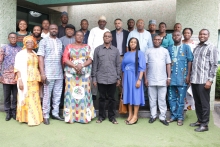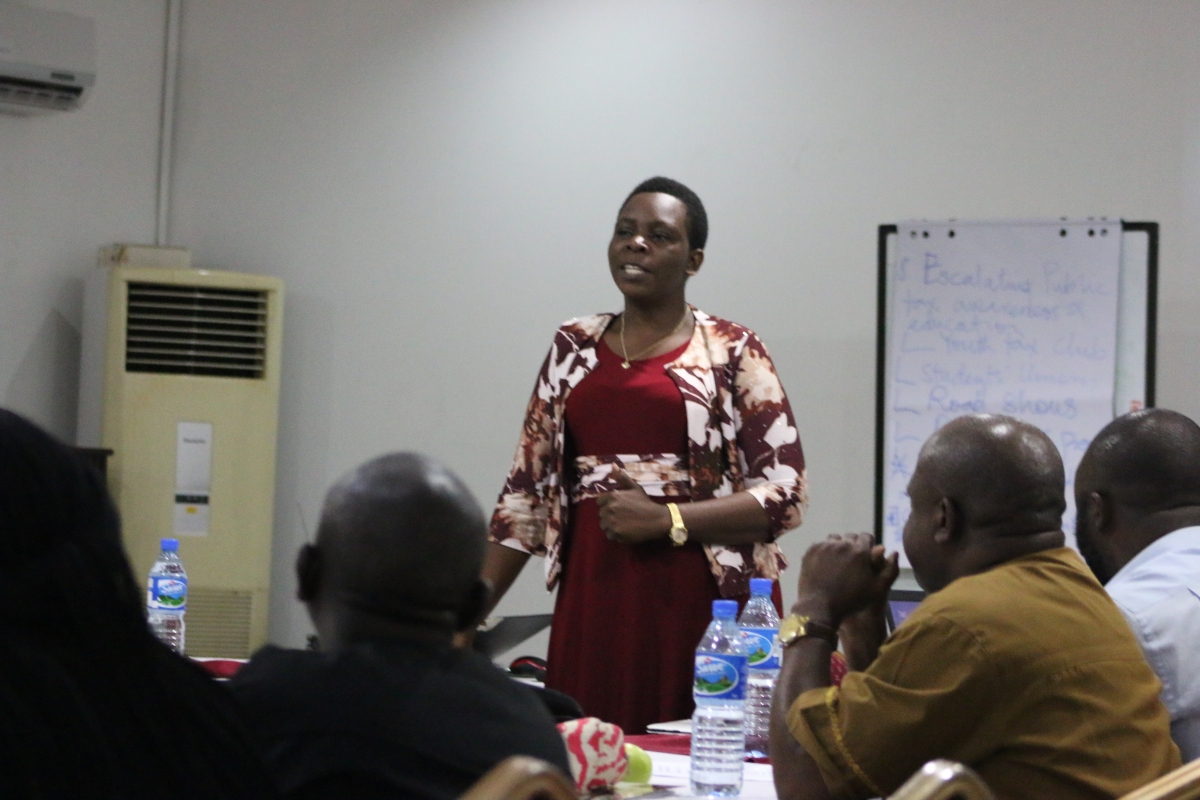Increasing trade union and CSOs participation in the fight against IFFs in Nigeria

The participants at the meeting commended the Federal Government of Nigeria for:
- Submitting a resolution in December 2016 at the UN General Assembly, on the “Promotion of International Cooperation to Combat Illicit Financial Flows in order to foster Sustainable Development”;
- Engaging the International Asset Tracing and Investigation Agency to trace and track illicit flows and cash and assets;
- Signing on to the Organization for Economic Cooperation and Development (OECD) Multilateral Competent Authority on Common Reporting Standards to allow for exchange of financial account information;
- Committing to being compliant and implement the OECD’s Common Reporting Standard (CRS) for exchanging financial information by 2019; Nigeria is currently finalising its regulatory framework for country-by-country reporting (CBCr).
The meeting participants noted with concern:
- That though the Nigerian government has made attempts to involve trade unions and civil society organisations in the whole illicit financial halting fight, such attempts have not been profound, structured and conscious enough in official public statements and institutional arrangements. The government must reflect this awareness in public statements and institutional arrangements given the added value brought by non-state actor watchdogs and their contributions to policy making proposals and their monitoring of the processes and progress of the various initiatives.
- On Beneficial Ownership Registers, Nigeria has no central register; no legal requirements for beneficial owners or shareholders to inform the company of changes in share ownership and no explicit laws that provide access for all law enforcement bodies and tax agencies to beneficial ownership information.
- Nigeria’s tax treaties were ratified mainly in the 1980s and the 1990s. Apart from the fact that these treaties have not been reviewed, and updated since, new treaties negotiated in recent years do not reflect concerns raised by national and international trade unions and CSOs.
 A press release jointly prepared by Public Services International, Nigeria Labour Congress, ActionAid Nigeria, CSOs Tax Justice and Governance Platform of Nigeria and the Friedrich-Ebert-Stiftung (FES) Nigeria noted:
A press release jointly prepared by Public Services International, Nigeria Labour Congress, ActionAid Nigeria, CSOs Tax Justice and Governance Platform of Nigeria and the Friedrich-Ebert-Stiftung (FES) Nigeria noted:
“We believe that the government of Nigeria can collect more revenue by reducing unnecessary tax incentives to multinational companies. This will help to address the challenges of funding public infrastructure development, provide and expand social protection benefits to Nigerians, especially the indigent ones, and assist in wages of public sector workers, as well as aid employment creation. We also believe that the government’s fight against illicit financial flows will be more successful with the involvement of all stakeholders, including trade unions and the wider civil society.”
Furthermore, participants unanimously agreed that fair tax payment is a legal and moral obligation that all taxable individuals and entities must be happy and proud to fulfil, especially when such accrued revenues are judiciously and effectively used to improve the welfare and well-being of all. Worries were also expressed concerning the situation where the poor and those in the informal economy, especially women continue to be subjected to multiple taxation payments and extortions.
The participants at the meeting made the following recommendations, mainly directed at the Nigerian government:
- To introduce better definitions of beneficial ownership in its legal system to identify the physical persons, not just the legal entities that own companies and trusts.
- To introduce a centralized register of beneficial ownership that is comprehensive, public, and free to use, and contain up-to-date verified information.
- Not to hand out any further discretionary tax incentives to companies and businesses. We urge the government to take steps to renegotiate those already in place, such as the setting up of a committee of parliament to provide oversight on the investment authority that grants tax incentives.
- Set up a parliamentary committee to provide oversight of the bodies that grants tax incentives such as the Nigerian Investment Promotion Council and the Free Zones Tax Administration. This committee should be tasked with approving any new tax incentives.
- Commit to and actually publish on an annual basis which companies are benefiting from statutory and discretionary tax incentives, and how much each company is benefiting from those incentives.
- Strive to ensure transparency and accountability of its tax treaties negotiations through increased public and parliamentary scrutiny of the negotiating process.
- Commit to conduct a cost-benefit analysis of all of its existing tax treaties. If treaties are considered detrimental to the amount of tax revenue that Nigeria can collect from multinational companies, Nigeria should consider renegotiating them.
- To consider not ratifying any of the tax treaties it has signed in recent years which lowers withholding tax rates and gives away taxing rights. These treaties can be renegotiated before being ratified.
- Nigeria should avoid tax treaties with any countries and jurisdictions that could be used by multinational companies for treaty shopping.
- Ensure that tax reforms ultimately lead to a better tax-to-GDP ratio so that Nigeria has more revenue to spend on infrastructure, quality public services and decent wages for public sector workers.
- The three tiers of government should continue to work in partnership with trade unions and civil society organisations on ways to drastically reduce multiple taxation on businesses, especially on workers, indigent persons and small businesses.
In conclusion, trade unions and CSOs resolved to continue to work to improve and increase tax awareness and education of the general public with the view to cultivate a Nigerian public conscious of tax issues and happy to pay their taxes, as well as effectively mobilised to vigilantly monitor governance at all tiers.

